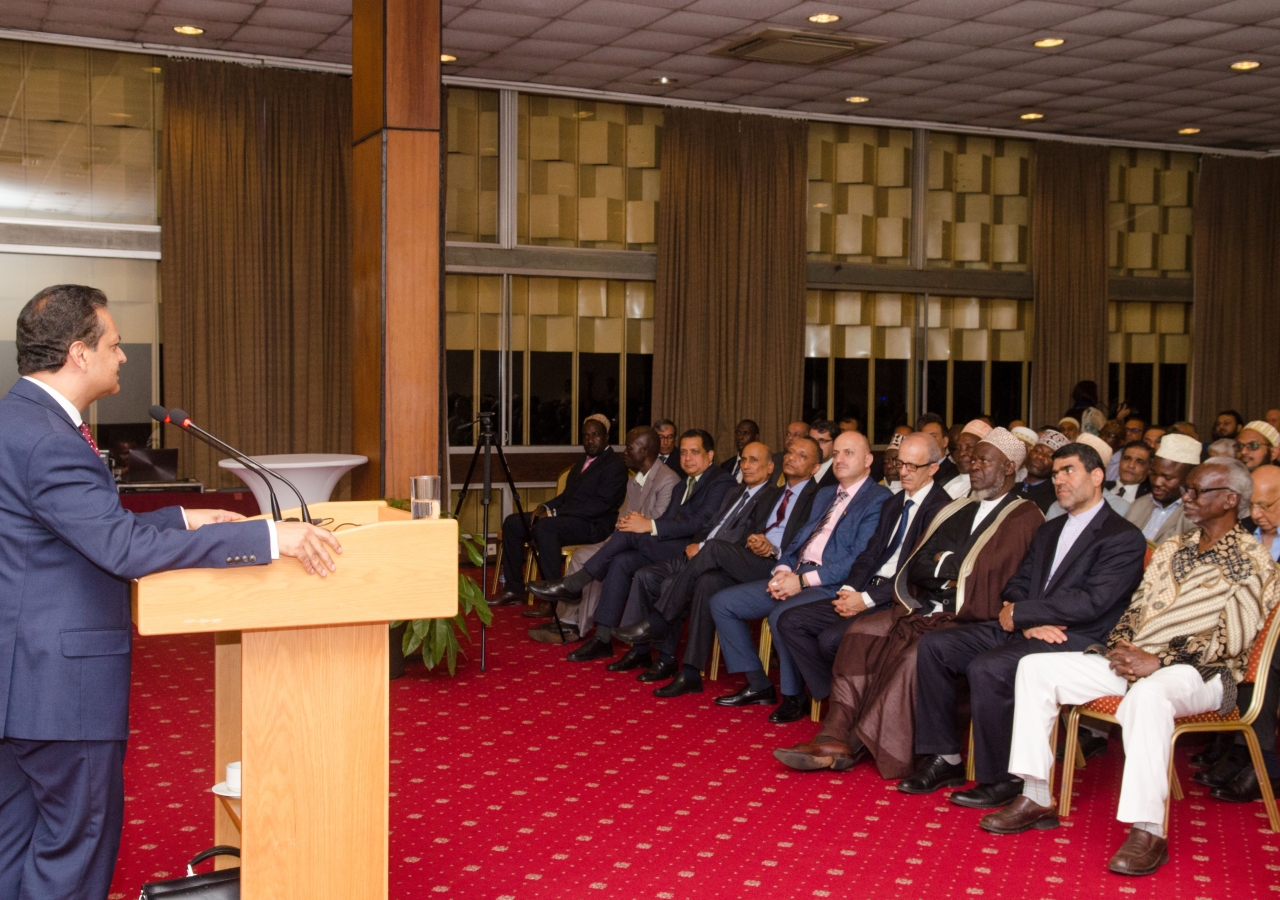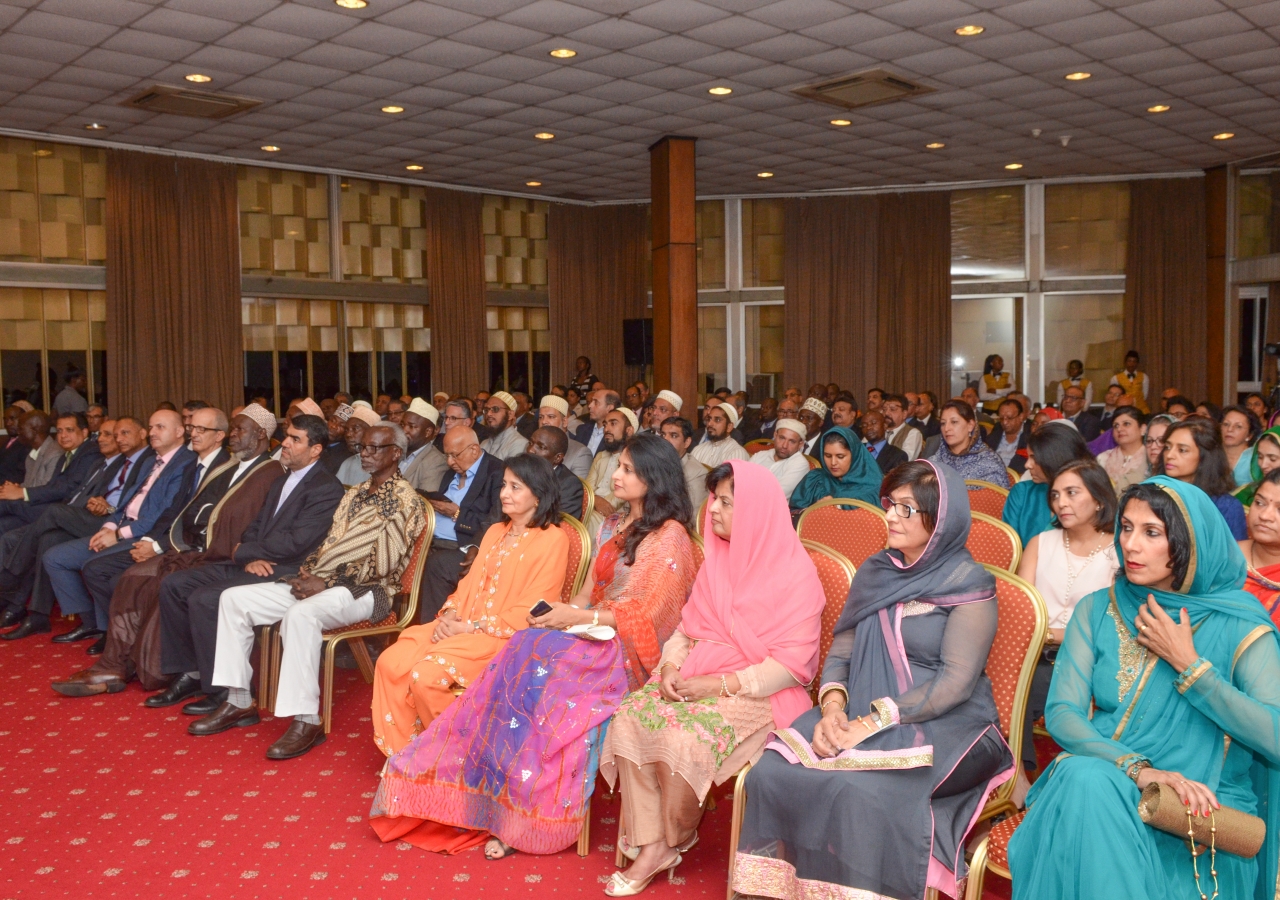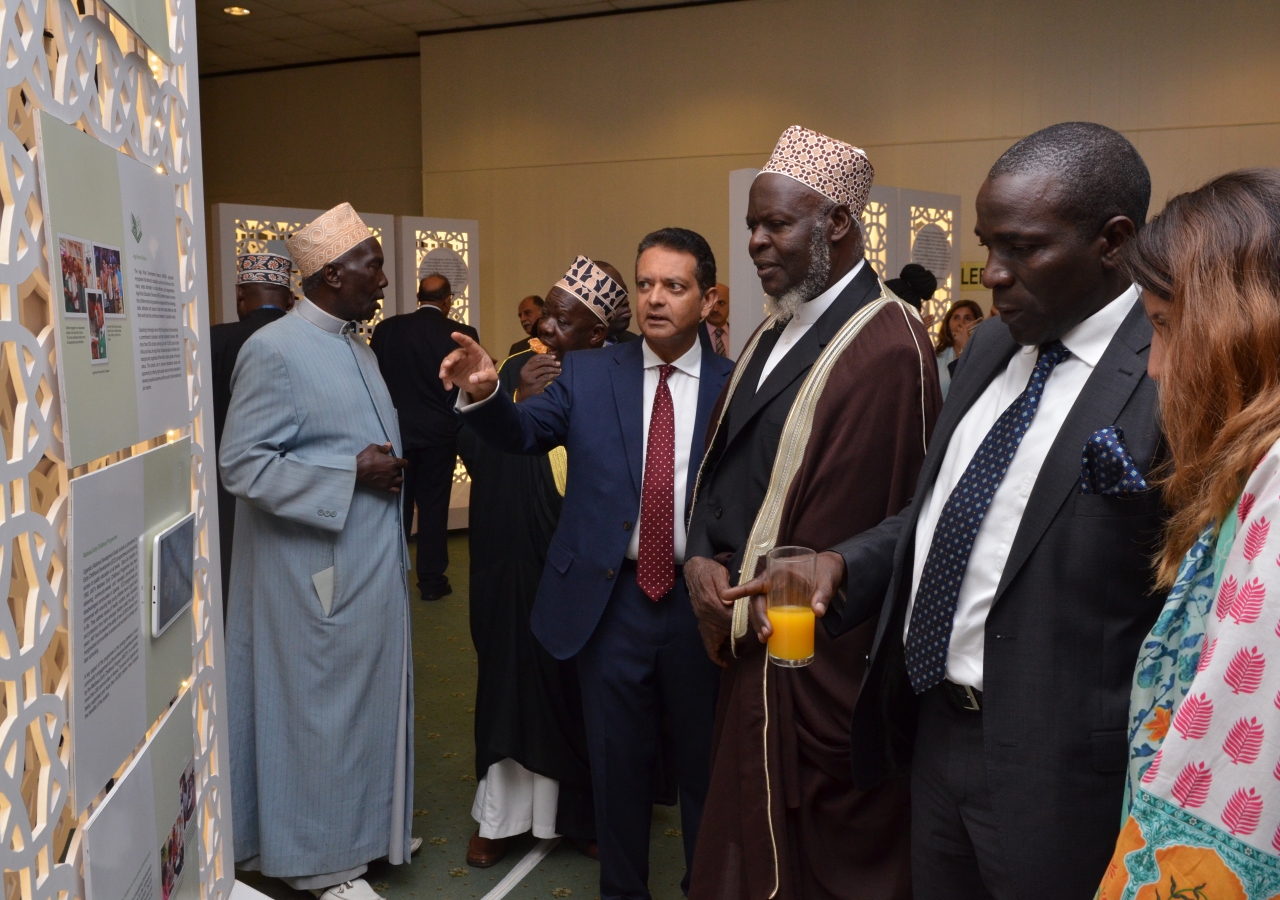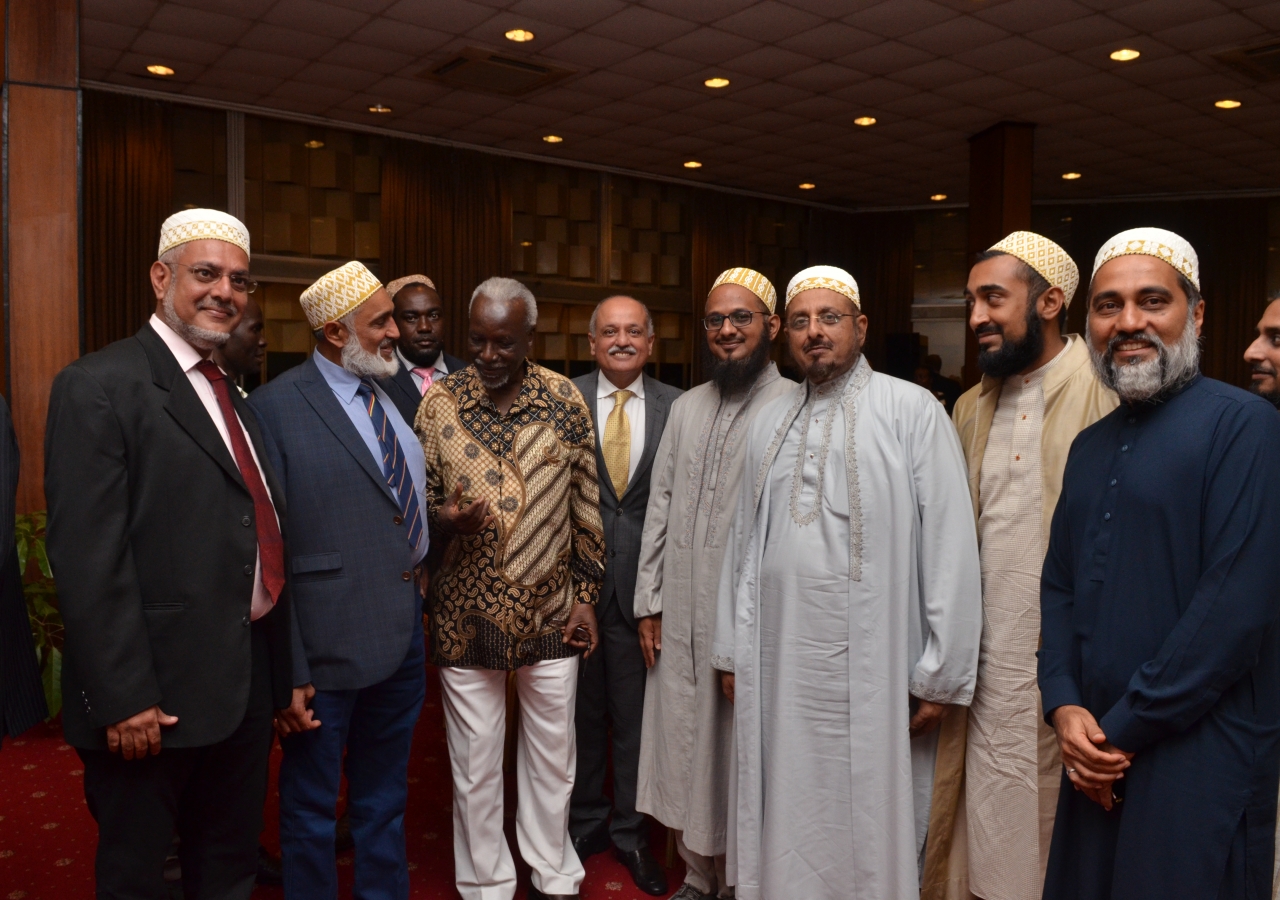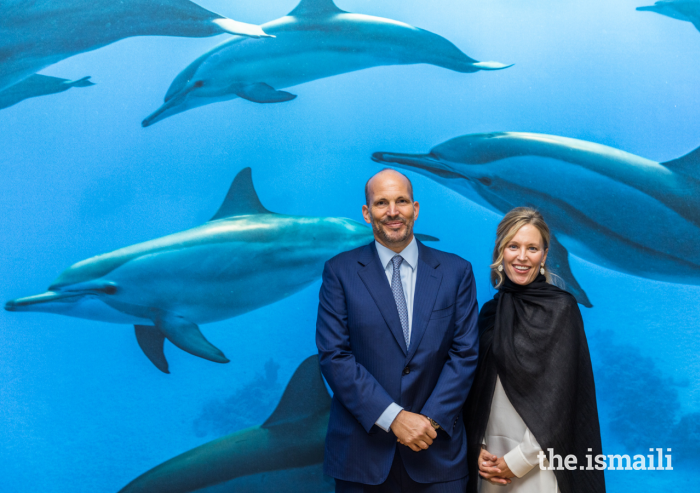Ambassador Amin Mawji, the Diplomatic Representative of the Aga Khan Development Network (AKDN), delivered a thought-provoking lectureon how we may learn human rights in Islam through the example of the Holy Prophet (PBUH).Speaking to this high profile audience, Ambassador Mawji drew attention to Article 18 of the Universal Declaration of Human Rights, and the need to protect the millions who are vulnerable to violence, discrimination and disadvantage as a result of its abuse. Just as Article 18 reaffirms the right of every human being to freedom of thought, conscience and religion, Islam safeguards human rights for all humanity.
The Ambassador then went on to speak about some key lessons in human rights that we must learn from Prophet Mohammad’s teachings. One important lesson to learn pertains to Islam and human rights. He spoke about the valuable lessons that may be found in Prophet Mohammad’s (PBUH) guidance on human rights.The Ambassador added that learning from the Prophet’s teachings can help make today’s world a much better place to co-exist in unity.The Ambassador also touched up on the human penchant to strive for freedom. This is evident, he said, from the struggles and social movements that have mottled human history. He alluded to Prophet Mohammad (PBUH) as a great example of a champion for justice who fought oppression.
One can say that the Prophet fought for a society that was more accepting and tolerant. Therein lies another important lesson, the Ambassador underscored. While Islam emphasizes on unity in humanity, Prophet’s (PBUH) actions also showed that Islam promotes diversity and pluralism.

